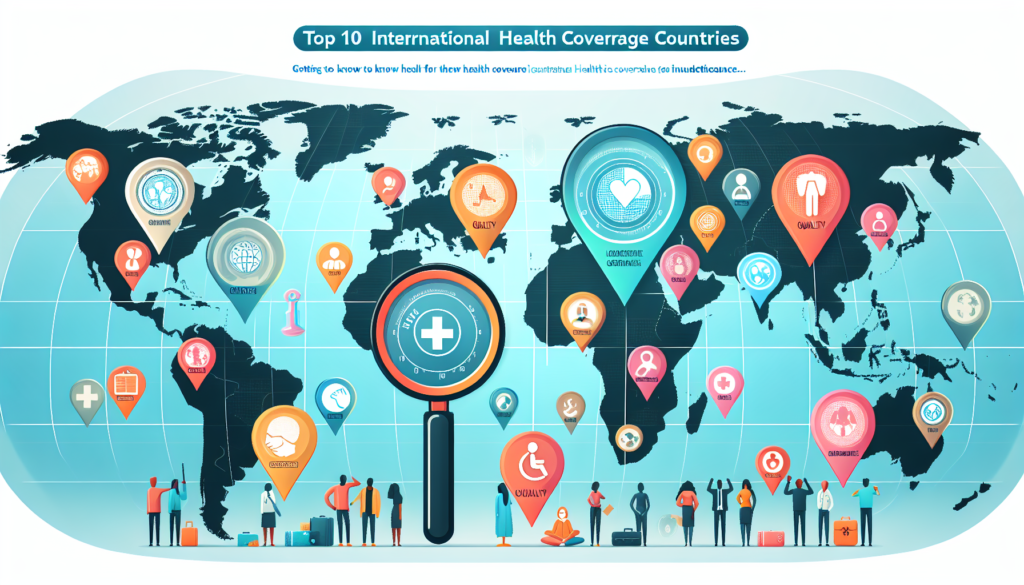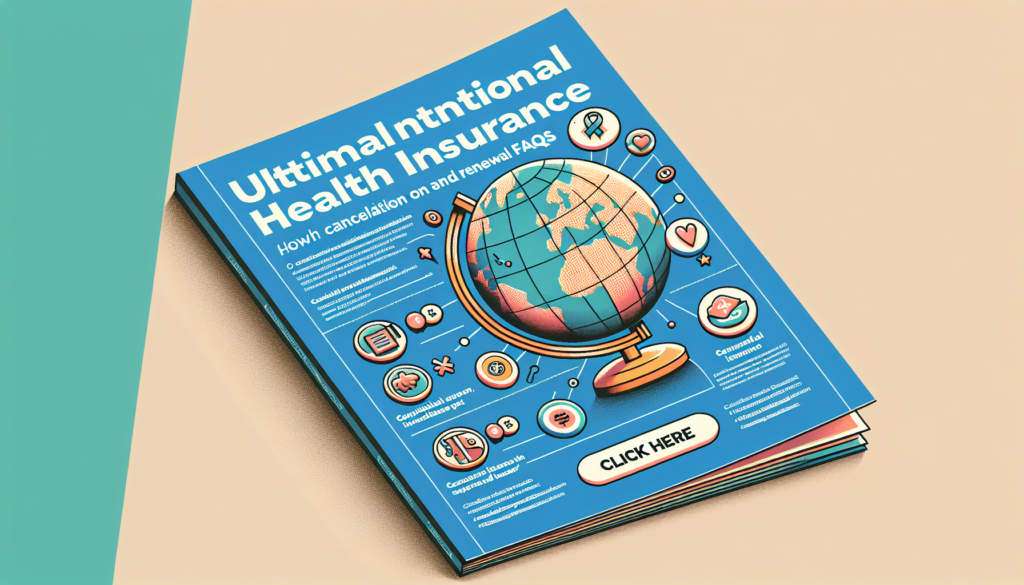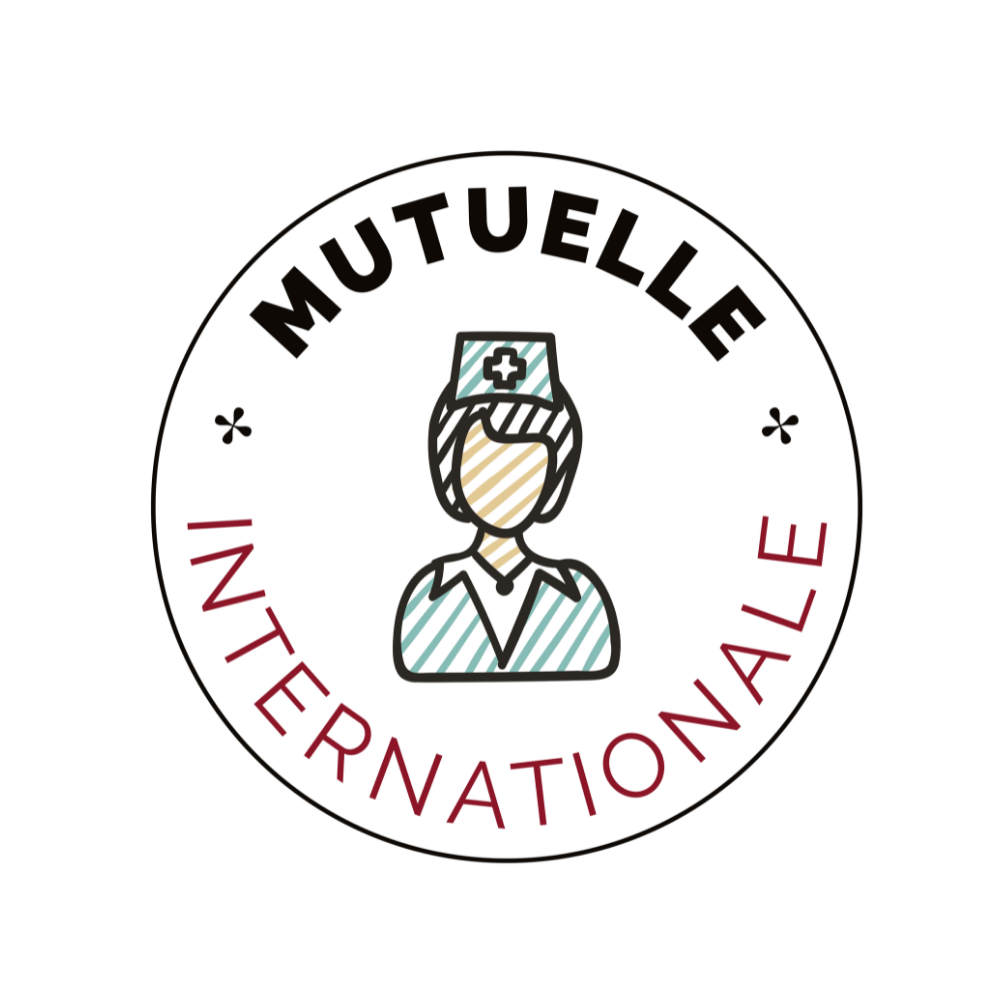Find out everything you need to know about handling international health insurance claims. Clear and concise answers to your frequently asked questions for rapid and efficient handling of your reimbursements.
International Health Insurance FAQ: Claims Management

How to file a claim?
To file a claim, you generally must fill out a claim form provided by your insurance company. This form is often available online on the insurer’s website. It is essential to attach all necessary supporting documents, such as medical bills and proof of payment. Once the form is completed and the documents have been collected, you can submit your claim by mail, email, or directly through a secure online portal.
What documents are needed for a claim?
The required documents may vary depending on the type of claim and insurer, but generally you will need to provide the following:
– Completed complaint form
– Copies of detailed medical bills
– Proof of payment (receipts, bank statements)
– Medical reports or prescriptions if relevant
– Personal information and your insurance policy
Be sure to check your insurer’s specific requirements to avoid any delays in processing your claim.
How long does it take to process a claim?
The processing time for a claim may vary depending on the insurer and the complexity of the file. Typically, a well-documented and complete claim is processed within 15 to 30 days. However, more complex claims may require a longer time frame. To speed up the process, be sure to provide all required documents and respond promptly to any requests for additional information from the insurer.
What to do if the claim is refused?
If your claim is denied, it is important to understand the reason for the denial. Most insurers will provide a detailed explanation in writing. You then have the opportunity to challenge this decision by providing additional information or documents to support your request. It is advisable to contact your insurer’s customer service to discuss your situation and possibly appeal the decision.
How do I track the status of my claim?
Most insurance companies offer several ways to track the status of your claim. You can usually:
– Access a secure online portal dedicated to customers
– Contact customer service by phone or email
– Use a mobile application if available
It is essential to stay informed of updates regarding your claim to ensure its proper progress and to respond promptly to any requests for additional information.
Do any fees apply when handling claims?
As a general rule, claims management does not entail additional costs for the insured. However, certain fees may apply for specific services, such as medical consultations with out-of-network professionals or for services not covered by the insurance policy. It is important to read the terms of your contract carefully to understand any associated costs.
How to choose the best international health insurance plan for effective claims management?
To choose an effective international health insurance plan, it is advisable to take into account the following criteria:
– Clarity and simplicity of the claims process
– Easy access to claims submission (online, mobile app)
– Speed of processing complaints
– Quality and availability of customer service
– Feedback from other policyholders via reviews and testimonials
A plan well suited to your professional and personal needs will guarantee smooth and rapid management of your claims.
These points will help you navigate the claims process with confidence, ensuring you receive the necessary care and reimbursements while traveling abroad.

What is the difference between travel insurance and international health insurance?
Wondering what the difference is between travel insurance and international health insurance? Find out in this article how to distinguish these two essential types of insurance for your travels abroad. Ready to lift the veil on this mystery? How international…

Is it possible to take out international health insurance for a limited period?
Find out how to get international health insurance for a limited time and make sure you’re covered when traveling abroad. Master the benefits of this flexible option for protection tailored to your international health needs. Temporary Cover for Expats and…
Conditions for submitting a claim

Understand the terms of your contract
To make your claim successful, it is essential to fully understand the terms of your international health insurance contract. Each contract may include specific conditions regarding the types of care covered, reimbursement limits and submission deadlines. Be sure to read your insurance policy carefully to avoid any unpleasant surprises.
Gather the necessary documents
Submitting a claim usually requires multiple documents. Here is a non-exhaustive list of documents you may need to provide:
- Detailed medical bills
- Prescriptions and prescriptions
- Medical reports and test results
- Proof of payment
- Completed claim form
These documents are essential to prove the nature of the care received and its cost, thus facilitating the processing of your claim.
Respect submission deadlines
Insurers often impose specific deadlines for submitting a claim, usually between 90 to 180 days after the care received. It is crucial to respect these deadlines to ensure that your request is processed. Check your contract for the exact deadline and make sure you submit your request on time.
Use appropriate submission channels
Nowadays, international health insurance companies offer several channels for submitting a claim, including:
- Online submission via the insurer’s secure portal
- Send by email
- Postal mail
Choose the channel that suits you best and follow the detailed instructions specific to each method to avoid any delays in processing your claim.
Track the status of your claim
After submitting your claim, it is important to track its status. Most insurers offer online tools to check the status of your claim. You can receive updates by email or telephone. Do not hesitate to contact your insurer’s customer service if you have any questions or need further information.
Use customer service to resolve issues
If you encounter problems or your complaint is rejected, customer service is your best friend. Good customer service will be able to guide you in correcting any errors in your application and advise you on the next steps to obtain reimbursement. Be persistent and provide any additional information requested to resolve issues quickly.
Prepare for future trips
Finally, to avoid complications with future claims, keep a record of all your medical documents and copies of your previous submissions. Also prepare yourself by knowing the quality medical facilities at your destination and listing them in your travel dossier. This proactive approach will facilitate your care in the event of a medical emergency abroad.

Which countries are covered by international health insurance?
Discover in this article the countries covered by international health insurance. This way you will know how to protect your health when traveling abroad. Geographic coverage of international health insurance Scope of international health insurance One of the main concerns…
Documentation required for claims
Understanding international health insurance claims
Navigating the world of international health insurance claims can seem complex, especially when you travel frequently. It is essential to know what documents are necessary for your reimbursement requests to be processed efficiently. Here is a guide to help you prepare a claim with complete peace of mind.
Required medical documents
When making your claim, medical documents are essential to prove the nature and extent of your care. Here is a list of commonly requested documents:
- Medical report from the attending physician, specifying the diagnosis and treatment received.
- Prescriptions for prescribed medications.
- Results of medical examinations, such as blood tests, x-rays or other diagnostic tests.
These documents must be clear and complete to avoid delays in processing your claim.
Proof of payment
To obtain reimbursement, you must provide proof of payment that demonstrates that you actually paid the medical expenses. The following documents are generally required:
- Detailed medical care invoices, clearly indicating services rendered.
- Payment receipts or debit notices from your bank card.
- Details of costs not covered by other insurance, if applicable.
Make sure all information is legible and consistent with the services described in your medical documents.
Reimbursement request form
Each insurer has its own reimbursement request form. It is crucial to complete this form accurately to avoid delays. This document generally includes:
- Your personal information (name, address, insurance contract number).
- Details of the care received (date, location, name of practitioner).
- A signed declaration confirming the accuracy of the information provided.
Download the form from your insurer’s website or ask your customer service for it.
Translations and certifications
If your documents are in a foreign language, some insurance companies may require certified translations. Remember to check specific requirements with your insurer to avoid any surprises.
Monitoring and communication
After submitting your request, it is important to follow its progress. Keep a copy of all documents sent and note the dates sent. Use the online tracking tools offered by your insurance or communicate with them regularly to ensure that your file is well taken care of.
These steps and documents will help you easily navigate the claims process with your international health insurance. By being well prepared, you will be able to obtain your reimbursements more quickly and without stress.

Discover the essential answers to your questions about international health insurance: from cancellation to renewal. Let’s clarify together these crucial steps for optimal medical coverage abroad. What is the procedure for canceling international health insurance? Understanding the reasons for termination…
Find out everything you need to know about the process of purchasing international health insurance through this comprehensive and informative FAQ. Simplify your procedures and ensure your peace of mind when traveling abroad. International Health Insurance FAQ: Underwriting Process What…
Claims processing times
Understanding claims processing times
When it comes to your health, every minute counts. Processing times for international health insurance claims can vary significantly. Insurance companies try to process claims as quickly as possible, but several factors affect these times. A well-managed and timely claims process is crucial to ensuring you receive the care you need without delay.
Why do processing times vary?
Claim processing times may vary due to several factors:
– The complexity of the medical file
– Availability of necessary documents (invoices, medical certificates, etc.)
– The region where the care was provided
– Internal policies of the insurance company
– The type of treatment or care required
Understanding these variables can help you better prepare your claims and reduce delays.
Optimize your claim submission
To minimize processing times, it is essential to properly prepare your claim. Here are a few tips :
– Gather all required documents in advance.
– Ensure that invoices and medical certificates are complete and accurate.
– Submit your claim online when possible to save time.
– Verify that all personal and medical information is correct.
Insurer engagement standards
Most international health insurance companies have commitment standards regarding claims processing time. Typically, they try to process simple complaints within five to ten business days. For more complex cases it may take a little longer. Do not hesitate to consult your insurance contract to find out the specified deadlines.
Tracking your complaint
Another key to speeding up the processing of your claim is to regularly monitor its status. Many insurance companies offer online platforms where you can check the progress of your file in real time. By staying informed and promptly providing any additional information requested, you can help reduce delays.
The role of customer service
Customer service plays a crucial role in handling your complaints. Effective support can not only answer your questions but also facilitate the claims process. Choosing an insurer that offers quality customer support, available and responsive, is essential to effectively manage your claims and receive rapid support.
What to do in case of delay?
If you notice a delay in processing your claim, take the following steps:
– Contact your insurer’s customer service immediately.
– Provide all additional information and documents required.
– Consider requesting a detailed explanation of the reason for the delay.
– If necessary, use your recourse rights or mediation to resolve the problem.
Proactive and informed handling of your claim can significantly improve your experience with your international health insurance.
Find out everything you need to know about international health insurance in one place! Clear and complete information on coverage and benefits to answer all your questions. Embark on a worry-free health insurance journey! Scope of international health insurance Geographic…

What is international health insurance?
Find out everything you need to know about international health insurance by exploring our FAQ article: What is international health insurance? A complete guide to understanding the advantages and specificities of this essential insurance for your professional and personal trips…
How to track the status of your claim
Understanding the claims process
When submitting a claim for your international health insurance, it is essential to understand the process. This includes collecting all necessary documents, submitting forms correctly, and following up on your application carefully. Familiarize yourself with your insurer’s specific requirements to avoid reimbursement delays or denials.
Prepare the necessary documents
Before submitting your claim, make sure you have all the required documents: detailed medical bills, prescriptions, medical reports, and proof of payment. Keep copies of all these documents for your personal records.
Submit your claim
Submitting your claim can generally be done electronically, by mail, or via a mobile app. Check the instructions provided by your insurer and make sure you follow each step meticulously. Clearly indicate all requested information to avoid any ambiguity.
Track the status of your claim
After submitting your claim, it is essential to monitor it regularly. Most insurers offer online ways to check the status of your case. Note the processing times announced by your insurer and contact customer service if you notice any delays.
Communicate with your insurer
If you encounter any unexpected problems or delays in processing your claim, do not hesitate to contact your insurer. Prepare all the necessary information and documents to facilitate the rapid resolution of your problem. Most insurers have dedicated teams to answer your questions and assist you in following up on your claim.
Use online services
Many international health insurers offer online platforms to manage your claims. These services allow you to submit documents, check the status of your claim and even chat with an advisor. Take advantage of these tools to improve your experience and speed up the process.
Tips for a successful claim
– Be precise and complete in your file.
– Submit all necessary documents in one go.
– Regularly monitor the status of your claim.
– Do not delay in contacting your insurer in the event of a problem.
Anticipate future needs
To avoid complications with future claims, make it a habit to keep all medical documents and proof of payment. Create an organized folder and update it regularly. This will help you to always be ready for a new claim.
Evaluate customer service satisfaction
Finally, your interaction with your insurer’s customer service is essential. Evaluate their responsiveness, availability and ability to resolve problems. A good customer experience not only improves your overall satisfaction but also makes it easier to follow up on your future complaints.
Procedures for Denied Claims
Understand the reasons for refusal
When your claim for international health insurance is denied, the first step is to understand why. Insurance companies must provide you with a clear explanation of the reasons for their decision. Read this explanation carefully and compare it with the terms and conditions of your contract to identify areas of divergence.
Check the terms of the contract
It is essential to know the details of your international health insurance contract. Review the terms and conditions to verify that your claim request is covered. Be sure to follow specific clauses, such as claim submission deadlines, required documents or coverage limits. Sometimes, errors in understanding the contract can lead to an unjustified refusal.
Gather the necessary documents
If your claim is denied, it is crucial to gather all the documents proving your claim. This may include:
- The medical report
- Invoices for care received
- Prescriptions
- Any exchange with the healthcare provider and insurer
These documents will serve as solid evidence to support your claim when you decide to challenge the decision.
Contact your insurer
After checking the reasons for the refusal and gathering the necessary documents, contact your insurer to discuss the situation. Ask for additional clarification if necessary and present evidence that your request is legitimate. Sometimes a simple chat with a customer service representative can resolve the issue.
Use mediation services
If your discussions with the insurer are unsuccessful, you can call on an insurance mediator. Mediation services exist to help resolve disputes between policyholders and insurance companies in an impartial manner. These services can provide a quick and efficient solution for denied claims.
Explore legal remedies
As a last resort, if all other options have been exhausted, it is possible to explore legal avenues to challenge the claim denial. Consult an insurance attorney to evaluate your legal options and determine whether legal action is viable. However, keep in mind that this option can be expensive and time-consuming.
Prevent future refusals
To avoid future frustration, make sure you understand your international health insurance requirements. Maintain complete and up-to-date documentation of all medical treatments and communications with your insurer. Taking proactive steps can greatly decrease the likelihood of a claim denial.
By following these steps, you can effectively navigate through the complex process of contesting a claim denial for international health insurance. Wanting quality care while traveling for work is legitimate, and understanding your insurance is key to getting the support you need.
Tips to make the claims process easier
Prepare your documents in advance
Before you leave on your trip, make sure you gather all the necessary documents for a possible claim. This includes your insurance policy, contact details of your insurer and a list of partner hospitals or clinics in your destinations. Also have a digital copy of these documents on your phone or computer for easy access. A well-organized file will greatly facilitate the claims process should the need arise.
Understand the terms of your insurance policy
It is crucial to carefully read and understand the terms of your international health insurance. Pay close attention to deductibles, exclusions and coverage limits. Contact your insurer to clarify any ambiguity. A good understanding of exactly what your insurance covers will help you avoid unpleasant surprises in the event of a claim.
Consult licensed healthcare providers
When you become ill or have an accident abroad, try to go to a healthcare facility approved by your insurer. Partner health providers are often familiar with the claims process and can even bill your insurance directly, avoiding large out-of-pocket costs. Consult the list of approved establishments provided by your insurer before your trip.
Keep all proofs and invoices
To ensure your claim is processed quickly and efficiently, keep all proof of care received abroad. This includes invoices, receipts, medical reports and prescriptions. Make sure these documents are clearly detailed and legible. In some cases, your insurer may also request a police report if the accident involves third parties.
Submit your claim quickly
Don’t wait to submit your claim once you return from your trip. The longer you wait, the more difficult it might be to collect necessary documents or recall events in detail. Most insurers have a specific period within which you must submit your claim, usually between 30 and 90 days. Be sure to follow this deadline to avoid complications.
Use online options
Most international health insurers now offer dedicated online areas for submitting claims. Using these platforms is often faster and more efficient than traditional methods. Download your documents, fill out the digital forms and follow the progress of your file in just a few clicks. This also allows you to keep a digital record of all your communications.
Contact customer service if you have a problem
If you encounter any difficulties with your claim, do not hesitate to contact your insurer’s customer service department. Good customer service is there to answer your questions and guide you through the process. Prefer insurers that offer 24/7 customer support, particularly useful for urgent questions during your international travel.

